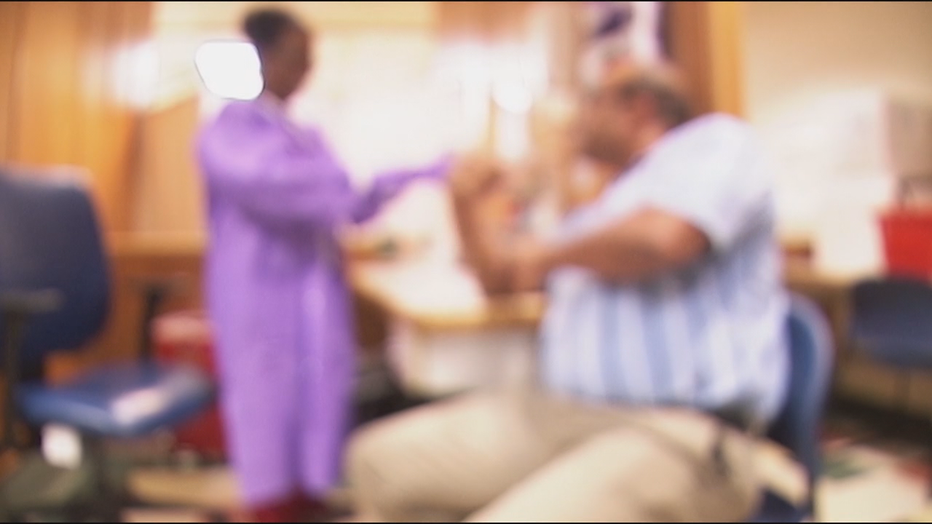Quick tips for prostate health
ATLANTA - Many men don't like going to the doctor.
But Kaiser Permanente urologist Barry Mason says regular checkups, and blood tests, are important, especially when you get older
"I think we have to be stewards of our health, Mason says. “If we don't take care of ourselves and rely on someone to take care of us, it may be too late."
Mason says prostate problems, from prostatitis to an enlarged prostate to prostate cancer, are common and treatable.
So, he says, if you are finding yourself urinating more frequently than you usually do, or feeling pressure or pain when you urinate, tell your doctor.
"If you can come in earlier, before it becomes a bigger problem, hopefully, we can nip it in the bud,” Mason says.
The Prostate Cancer Foundation says a man’s risk of developing prostate cancer increases with age.
Race can also play a role. The Prostate Cancer Foundation says African American men are 76% more likely to develop prostate cancer than Caucasian men, and they're 2.2 times more likely to die from it.
The disease is also more common in men with a family history of prostate cancer.

Obesity, smoking, and a poor diet can also raise your risk of prostate cancer. So, there are some risk factors you can control.
Among the Prostate Cancer Foundation recommendations to lower your risk of prostate cancer:
- Try to get to a healthy weight
- If you smoke, stop
- Drink alcohol in moderation
- Cut back on red meat and dairy products, which can be high in saturated fat
- Limit your calcium intake
- Eat more prostate-friendly foods, such as cold-water fish, like salmon, tuna, or trout, which is high in omega 3 fatty acids, berries, and cruciferous vegetables like broccoli, kale, and cauliflower, and tomatoes cooked in olive oil.
For overall urinary tract health, Mason says, drink more water.
"If you wait to drink for thirst, you're already a little dehydrated,” he says. “So, better to stay ahead of it."


